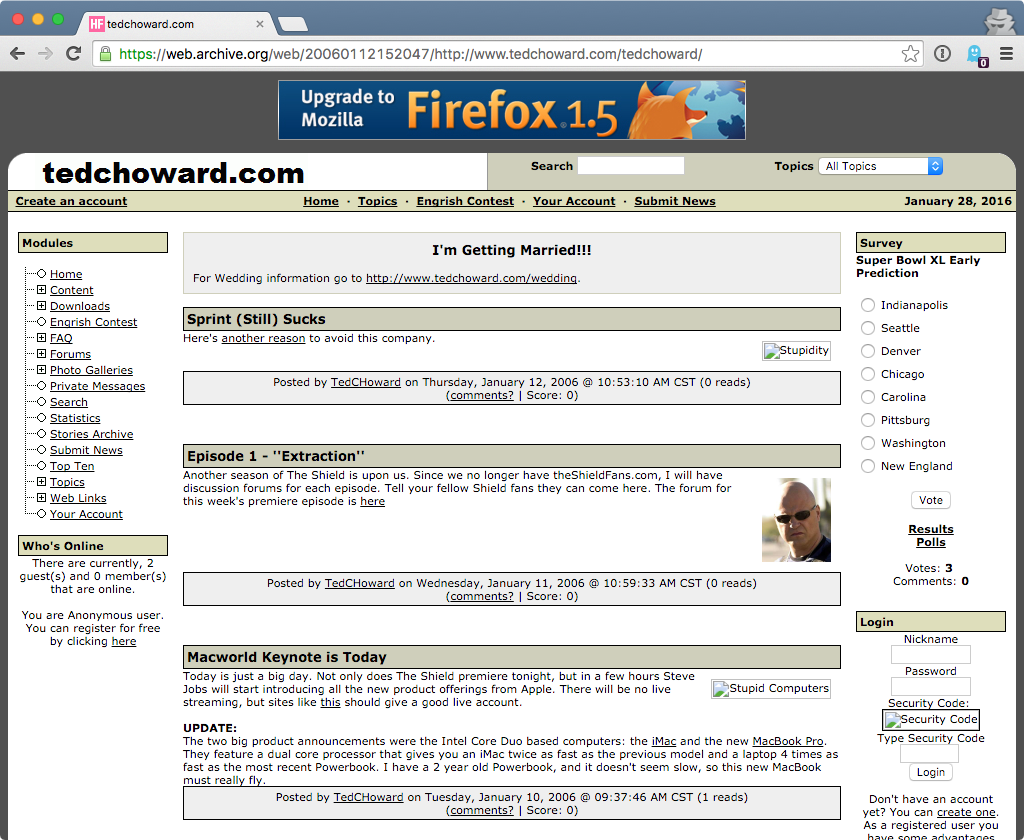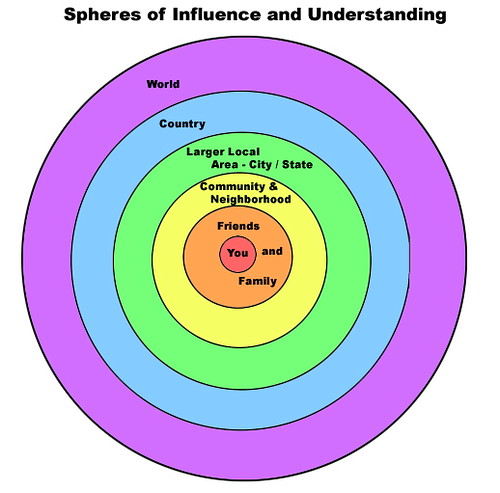There are many words that Christians use today that I feel have lost their original meanings. Christianity took a common word and used it to explain a uniquely Christian concept. Over time the word fell out of the common vernacular, but the church kept using it. When such words are used today, they come with theological baggage: a specific understanding of the concept is implied whenever the word is used.
Today, I’d like to talk about the word ‘holy’.
NOTE: This blog post was adapted from a sermon I preached this past Sunday (May 4, 2014). The sermon was recorded, and that recording is embedded at the bottom of this page.
As obedient children, do not conform to the evil desires you had when you lived in ignorance. But just as he who called you is holy, so be holy in all you do; for it is written: "Be holy, because I am holy."
1 Peter 1:14-16
Using the context of the passage above, you might reach the conclusion that to be holy, you must adhere to some moral code (instead of conforming to evil desires). Is this what ‘holy’ actually means?
Holy Etymology, Batman!
If we restrict out search to the English language, then, yes, holy has always had a religious definition. Let’s look further. The Hebrew word that is translated to the English ‘holy’ is ‘qadesa’ “which encompasses the idea of separateness and differentiation from the normal." It’s first use in scripture is when God is speaking to Moses through the burning bush.
"Do not come any closer," God said. "Take off your sandals, for the place where you are standing is holy ground."
Exodus 3:5
To be holy is to be different, set apart, special. But the word itself does not specify what makes something holy. It’s just like the word special. If I were to talk about special food, I could be referring to high quality, farm fresh foods, or I could be refering to McDonald’s special sauce. That’s quite a range.
What Makes One Holy?
The 1 Peter passage I quoted above says, “… it is written: ‘Be Holy, because I am holy.'” It turns out, the author of 1 Peter is quoting from Leviticus:
You are to be holy to me because I, the Lord, am holy, and I have set you apart from the nations to be my own.
Leviticus 20:26
Just one paragraph earlier, we read this:
"Keep all my decrees and laws and follow them, so that the land where I am bringing you to live may not vomit you out. You must not live according to the customs of the nations I am going to drive out before you. Because they did all these things, I abhorred them. But I said to you, 'You will possess their land; I will give it to you as an inheritance, a land flowing with milk and honey.' I am the Lord your God, who has set you apart from the nations."
Leviticus 20:22-24
So, it would appear that keeping the commandments of God is what sets us apart, what makes us Holy. Did I really do all this study just to end up with the definition I started with?
There’s (at least) one more question left to ask:
Which Commandments?
The Torah contains 613 commandments. The rest of scripture contains countless stories of God’s people failing to keep his commandments. Is it reasonable to ask if there are a subset of commandments that we could keep and still maintain our status as holy?
Hearing that Jesus had silenced the Sadducees, the Pharisees got together. One of them, an expert in the law, tested him with this question: "Teacher, which is the greatest commandment in the Law?"
Matthew 22:34-36
2,000 years ago, someone who was considered an “expert in the law” asked Jesus which commandment was more important than the others. Pay attention to Jesus’ reply. He doesn’t question the premise (that some commandments are more important than others). He doesn’t say that all commands are equal in God’s eyes. Instead, he answers directly:
Jesus replied: "'Love the Lord your God with all your heart and with all your soul and with all your mind.' This is the first and greatest commandment. And the second is like it: 'Love your neighbor as yourself.' All the Law and the Prophets hang on these two commandments."
Matthew 22:37-40
Jesus is saying that all of scripture is to be understood and interpreted through these two commandments. The most important command is to love: love God and love people.
If the command is to love, and the thing that sets us apart (makes us holy) is obedience to the commands, then the thing that makes us holy is our love. In programming terms: holiness == love.
Am I stretching here, perhaps reading too much into the text? After all, if Jesus really meant to redefine holiness as love, wouldn’t he have been more explicit?
A new command I give you: Love one another. As I have loved you, so you must love one another. By this everyone will know that you are my disciples, if you love one another.
John 13:34-35
In other words, we are set apart as his disciples (made holy) when we love each other as he loved us.
To be Holy is to Love
Pause for a second and let your brain re-wire itself: holiness == love_for_each_other.
Good, now let’s revisit the passage from 1 Peter.
As obedient children, do not conform to the evil desires you had when you lived in ignorance. But just as he who called you ~~is holy~~ loves you, so ~~be holy~~ love each other in all you do; for it is written: "~~Be holy, because I am holy.~~" "As I have loved you, so you must love one another."
What are these evil desires? What does it mean to live in ignorance?
When I see phrases like this, my brain connects them with other phrases like ‘sinful nature’ and ‘flesh’. When the Apostle Paul refers to “desires of the flesh” he often has a list of vices:
- sexual immorality, imputity, and debauchery
- idolatry and witchcraft
- hatred, discord, jealosy, fits of rage, selfish ambition, dissentions, factions, and envy
- drunkenness, orgies, and the like
I don’t think this list is what the author of 1 Peter had in mind. He is contrasting ‘evil desires’ with being ‘holy’, which we now know means loving others.
What are these evil desires? Let me illustrate this with a story:
It’s 3am. You’re sound asleep. The phone rings. You wake up, and immediately you get an anxious feeling deep in the pit of your stomach. You answer the phone. It’s a collect call. You know who it is. You accept the charges.
It’s your son. He’s in jail. Again. He promised that the last time would be the last time. You believed him because you desperately wanted needed to believe him. What is it this time? Alcohol? Drugs? Is he high now?
What do you feel? How do you react?
- Anger: "Do you know what you're doing to this family?!"
- Guilt: "How could I allow this to happen? I've failed as a father!"
- Frustration: "That's it! I'm done with him! I can't do this anymore. He can bail himself out of jail, for all I care!"
Any one of those reactions seems reasonable and justifiable to us, but I would suggest that they are the “evil desires you had when you lived in ignorance.”
Now that you have purified yourselves by obeying the truth so that you have sincere love for each other, love one another deeply from the heart [from a pure heart].
1 Peter 1:22
Loving from a Pure Heart
What does it mean to have a pure heart? First, a pure heart is not dependent on the behavior or approval of others for happiness or validation. In the story above, the father needs his son to act a certain way in order for him to be happy and feel validated as a father. When the son deviates from the accepted path, the father is incapable of happiness and feels guilt and
shame.
When your happiness is dependent on the behavior of others, it’s impossible to truly love them. Our happiness and validation should come only from God. He created us in his image. He gives us our existance and our purpose. We are loved and valued by God unconditionally. When we can truly believe this, we become able to drop the baggage of co-dependency and truly love others with the
love of God.
This kind of love is supernatural. You will not be able to just grit your teeth, work harder, and will yourself to love another. The only way to love like this is to drop your baggage at the foot of the cross. Give your life over to Jesus, truly believe that he loves you, that you have a God-given purpose in this life. Only then, through the power of his Holy Spirit, you will be able to truly love as he loved you. You will truly be holy.
[audio mp3=“https://tedchoward.files.wordpress.com/2014/05/2014-05-04-redefining-holiness.mp3”][/audio]
Download MP3





